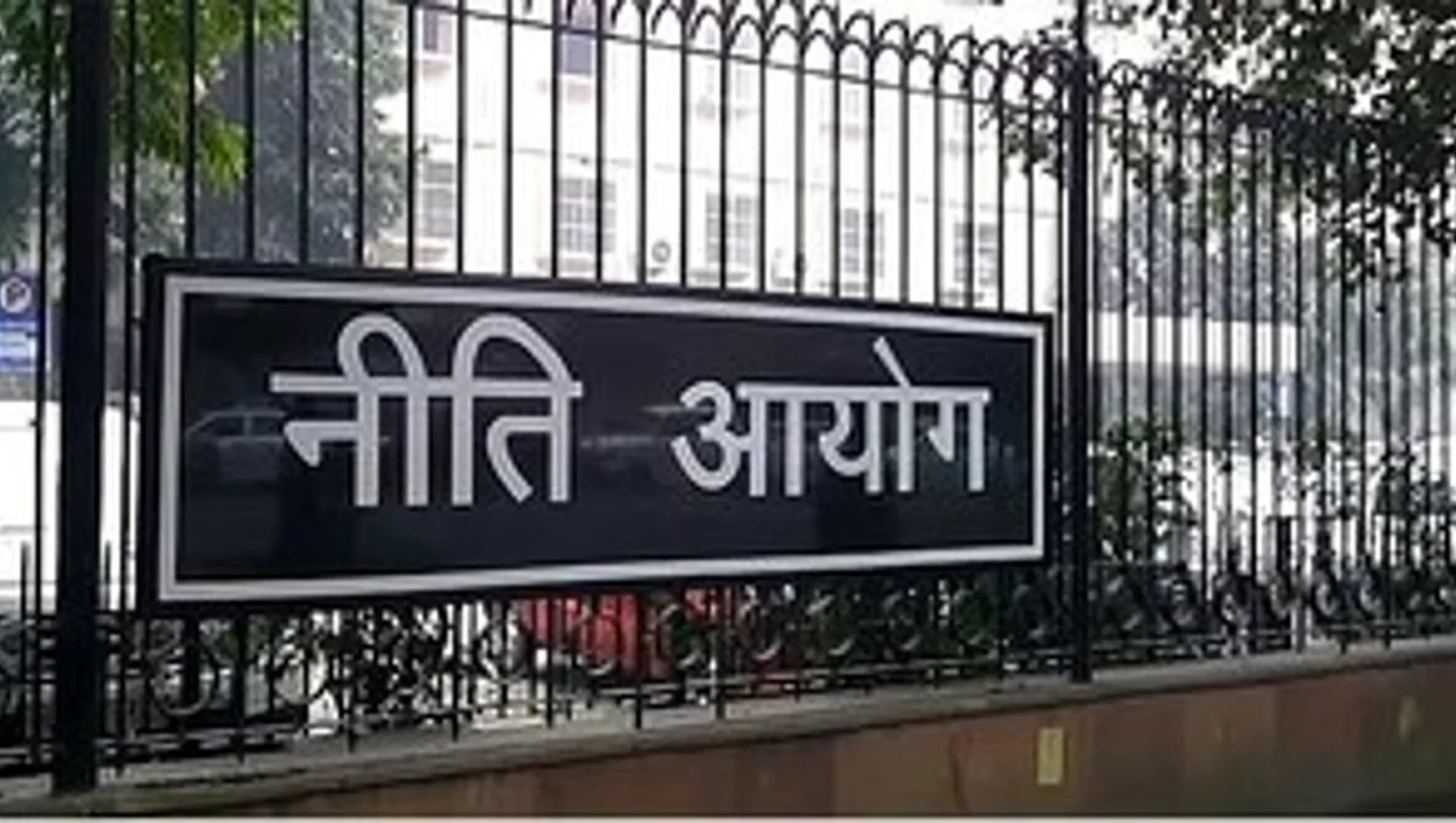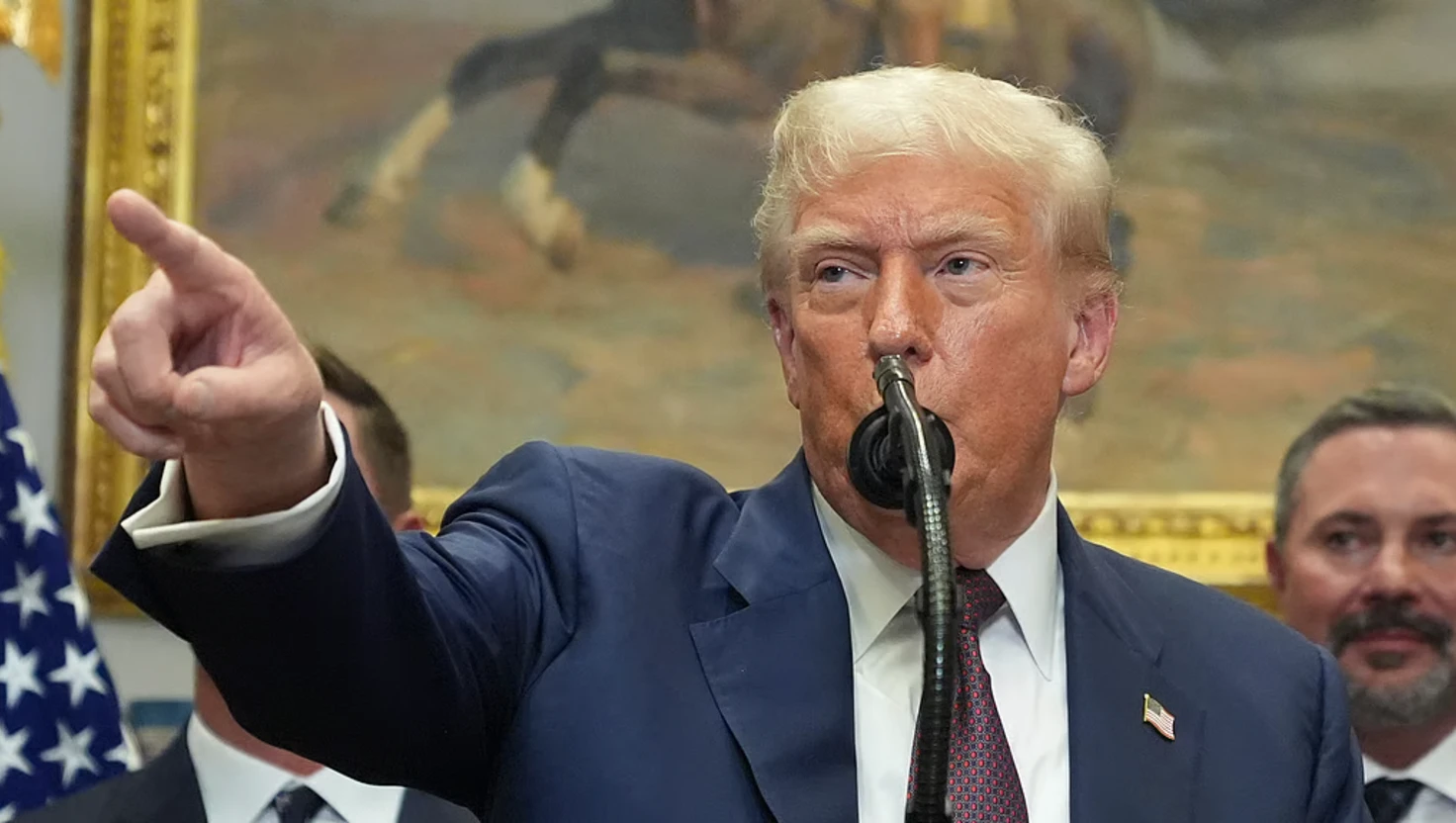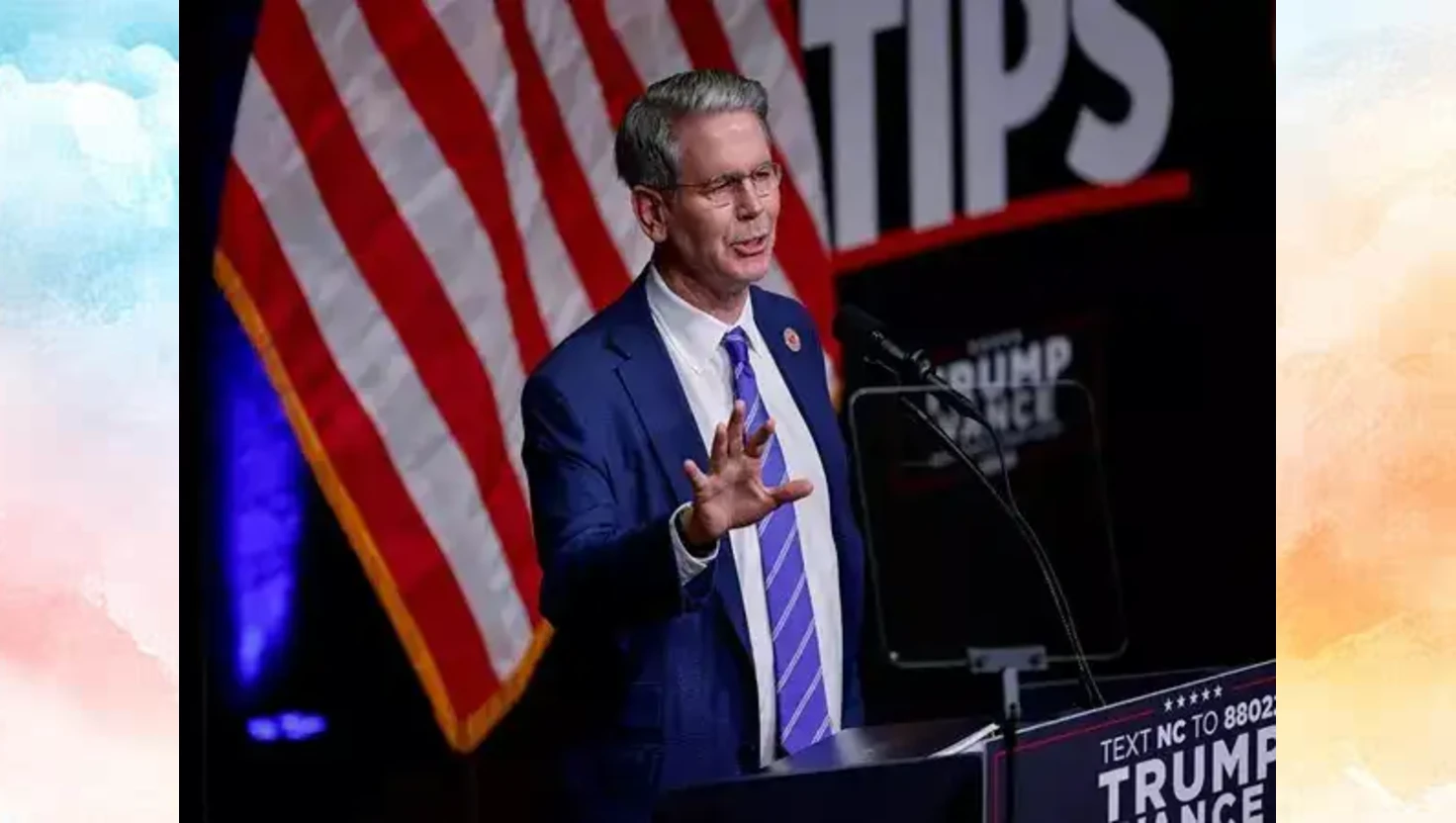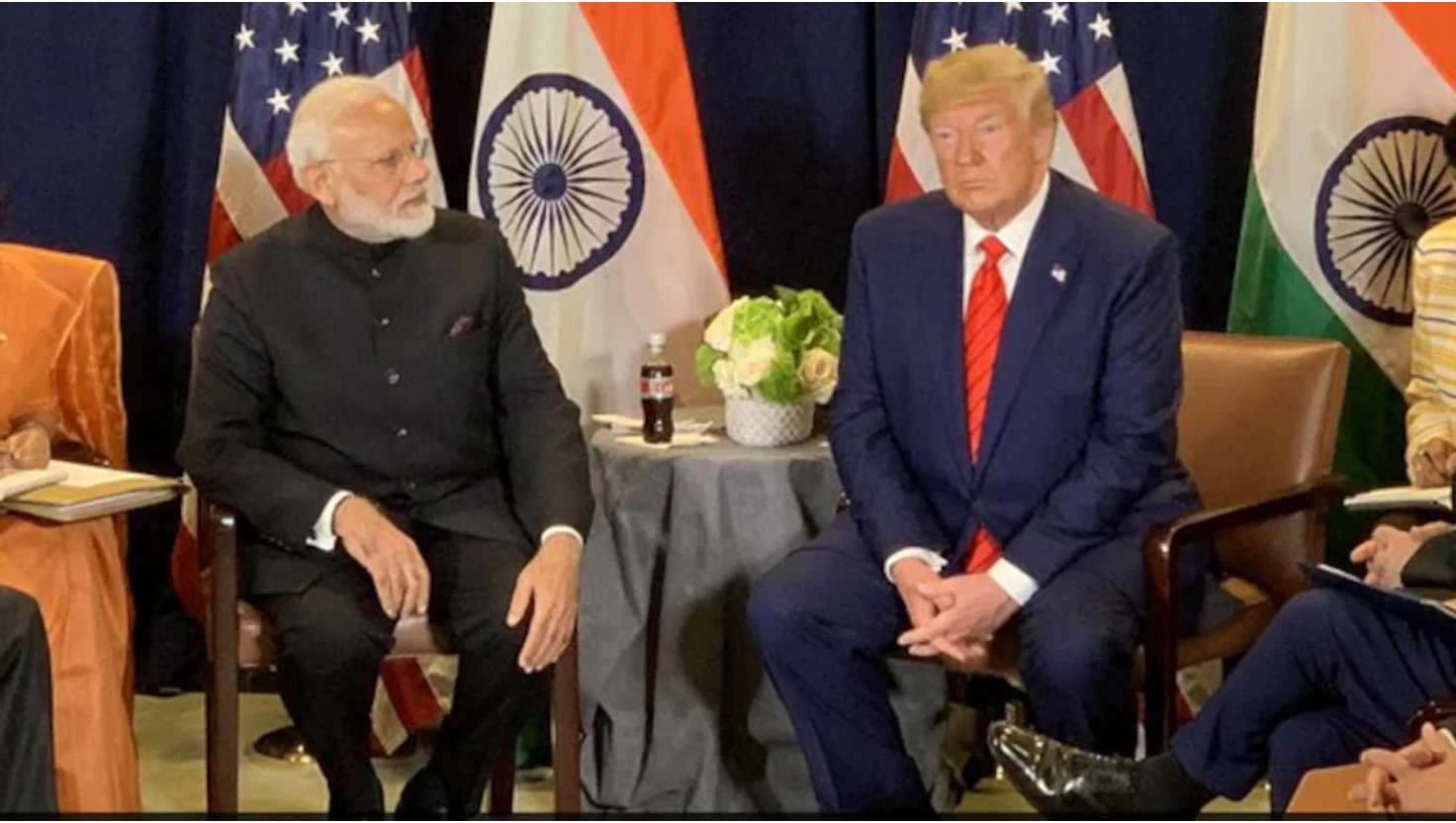India's Niti Aayog Proposes National EV Policy for 30% Sales by 2030

India's Niti Aayog Proposes National EV Policy for 30% Sales by 2030
Niti Aayog calls for a national electric vehicle policy as India aims for 30% EV sales share by 2030, highlighting significant challenges ahead.
Niti Aayog, India’s premier policy think tank, has proposed a structured, time-bound national electric vehicle (EV) policy aimed at achieving a 30% share of EV sales by 2030. The recommendation is part of a broader report titled, "Unlocking a USD 200 Billion Opportunity: Electric Vehicles in India," aiming to facilitate India's transition towards cleaner modes of transport.
The report was unveiled by Niti Aayog member Rajiv Gauba. It suggests the establishment of a phased regulatory framework and the implementation of mandates for Zero Emission Vehicles (ZEVs). According to the report, a rigorous timeline for EV adoption is essential. Gauba stated, “India stands at the cusp of a transformative shift in clean mobility,” underlining the necessity of decisive policy measures at this critical juncture.
The report recommends expanding corporate average fuel efficiency (CAFE) standards to include a wider array of vehicles while introducing measures to reduce the incentives for internal combustion engine (ICE) vehicles. The aim is to create a more stringent roadmap that mandates the production and purchase of EVs while disincentivising the continued use of ICE vehicles. As reported by the Press Trust of India, this transition from financial incentives to regulatory mandates is seen as vital for accelerating EV adoption.
To enhance the accessibility of electric vehicles, especially in commercial transport, the report put forth the idea of establishing a pooled fund contributed by public entities and multilateral development banks. This fund would facilitate low-interest loans aimed at the procurement of electric buses and trucks. Additionally, Niti Aayog emphasised the importance of adopting service delivery models rather than focusing solely on asset ownership, which could help reduce costs.
The report also highlights the urgent need to bolster research and development initiatives aimed at reducing battery costs, improving energy density, and lessening reliance on imported rare earth materials.
Key components of a successful EV policy framework include the strategic expansion of charging infrastructure and public awareness campaigns about electric mobility. Encouraging battery leasing schemes is also suggested as a method to lower upfront costs for potential EV owners.
Among its actionable items, the report proposes a pilot programme for the deployment of electric buses, para-transit vehicles, and freight vehicles across five major cities. This initiative aims to demonstrate the viability and effectiveness of such vehicles in urban settings.
Another challenge identified in the report is the absence of reliable data across various EV categories, which hampers effective policy formulation and tracking of progress. The report noted, “The lack of accurate data impedes policy design, subsidy targeting, and overall assessment of progress.”
Niti Aayog CEO B.V.R. Subrahmanyam stressed the think tank's ongoing role in advancing India’s EV transition. He remarked, “This report provides a timely and comprehensive review of current challenges, along with actionable recommendations to expedite the EV transition in India.”
Despite ambitious goals, India’s journey towards electric mobility has experienced sluggish growth. According to the report, electric vehicle sales increased from approximately 50,000 units in 2016 to an anticipated 2.08 million in 2024. In contrast, global EV sales surged from 918,000 in 2016 to 18.78 million over the same period. This comparative analysis illustrates India's modest share of EV sales.
The report notes that while India's EV sales share has risen from one-fifth of global penetration to over two-fifths by 2024, the growth rate is still inadequate. The share of EVs in total vehicle sales in India stands at just 7.6%, necessitating an aggressive scale-up in the remaining five years to meet the targeted 30% by 2030. “It has taken nearly 10 years to achieve a 7.6% penetration level, and now needs to increase this share by over 22% in just five years,” the report concluded.
In a concurrent development, Niti Aayog has released its first India Electric Mobility Index (IEMI), positioning Delhi, Maharashtra, and Chandigarh as the leading states in the electric mobility sector. The index evaluates states and Union territories on a scale of 100 across 16 performance indicators covering themes such as transport electrification, charging infrastructure readiness, and research and innovation in electric mobility.
Delhi and Maharashtra excelled in transport electrification while Haryana, Karnataka, Ladakh, and Himachal Pradesh emerged as leaders in charging infrastructure readiness. In terms of innovative research efforts, Delhi, Tamil Nadu, Maharashtra, Karnataka, Haryana, and Telangana were highlighted as front runners.
Niti Aayog maintains that the IEMI is a crucial tool to evaluate the effectiveness of state policies and identify successful practices while highlighting areas needing improvement. The index aims to foster competition among states and promote the exchange of best practices to align with India's overarching electric mobility objectives.
Currently, 29 states and Union territories in India have formulated EV policies, with additional regions working on drafts to enhance local responses through targeted incentives and regulatory measures. The report indicates a notable uptick in private electric vehicle adoption, with electric two-wheelers and cars accounting for 5.3% of registrations and over 1.2 million EVs estimated in 2024.
The report was unveiled by Niti Aayog member Rajiv Gauba. It suggests the establishment of a phased regulatory framework and the implementation of mandates for Zero Emission Vehicles (ZEVs). According to the report, a rigorous timeline for EV adoption is essential. Gauba stated, “India stands at the cusp of a transformative shift in clean mobility,” underlining the necessity of decisive policy measures at this critical juncture.
The report recommends expanding corporate average fuel efficiency (CAFE) standards to include a wider array of vehicles while introducing measures to reduce the incentives for internal combustion engine (ICE) vehicles. The aim is to create a more stringent roadmap that mandates the production and purchase of EVs while disincentivising the continued use of ICE vehicles. As reported by the Press Trust of India, this transition from financial incentives to regulatory mandates is seen as vital for accelerating EV adoption.
To enhance the accessibility of electric vehicles, especially in commercial transport, the report put forth the idea of establishing a pooled fund contributed by public entities and multilateral development banks. This fund would facilitate low-interest loans aimed at the procurement of electric buses and trucks. Additionally, Niti Aayog emphasised the importance of adopting service delivery models rather than focusing solely on asset ownership, which could help reduce costs.
The report also highlights the urgent need to bolster research and development initiatives aimed at reducing battery costs, improving energy density, and lessening reliance on imported rare earth materials.
Key components of a successful EV policy framework include the strategic expansion of charging infrastructure and public awareness campaigns about electric mobility. Encouraging battery leasing schemes is also suggested as a method to lower upfront costs for potential EV owners.
Among its actionable items, the report proposes a pilot programme for the deployment of electric buses, para-transit vehicles, and freight vehicles across five major cities. This initiative aims to demonstrate the viability and effectiveness of such vehicles in urban settings.
Another challenge identified in the report is the absence of reliable data across various EV categories, which hampers effective policy formulation and tracking of progress. The report noted, “The lack of accurate data impedes policy design, subsidy targeting, and overall assessment of progress.”
Niti Aayog CEO B.V.R. Subrahmanyam stressed the think tank's ongoing role in advancing India’s EV transition. He remarked, “This report provides a timely and comprehensive review of current challenges, along with actionable recommendations to expedite the EV transition in India.”
Despite ambitious goals, India’s journey towards electric mobility has experienced sluggish growth. According to the report, electric vehicle sales increased from approximately 50,000 units in 2016 to an anticipated 2.08 million in 2024. In contrast, global EV sales surged from 918,000 in 2016 to 18.78 million over the same period. This comparative analysis illustrates India's modest share of EV sales.
The report notes that while India's EV sales share has risen from one-fifth of global penetration to over two-fifths by 2024, the growth rate is still inadequate. The share of EVs in total vehicle sales in India stands at just 7.6%, necessitating an aggressive scale-up in the remaining five years to meet the targeted 30% by 2030. “It has taken nearly 10 years to achieve a 7.6% penetration level, and now needs to increase this share by over 22% in just five years,” the report concluded.
In a concurrent development, Niti Aayog has released its first India Electric Mobility Index (IEMI), positioning Delhi, Maharashtra, and Chandigarh as the leading states in the electric mobility sector. The index evaluates states and Union territories on a scale of 100 across 16 performance indicators covering themes such as transport electrification, charging infrastructure readiness, and research and innovation in electric mobility.
Delhi and Maharashtra excelled in transport electrification while Haryana, Karnataka, Ladakh, and Himachal Pradesh emerged as leaders in charging infrastructure readiness. In terms of innovative research efforts, Delhi, Tamil Nadu, Maharashtra, Karnataka, Haryana, and Telangana were highlighted as front runners.
Niti Aayog maintains that the IEMI is a crucial tool to evaluate the effectiveness of state policies and identify successful practices while highlighting areas needing improvement. The index aims to foster competition among states and promote the exchange of best practices to align with India's overarching electric mobility objectives.
Currently, 29 states and Union territories in India have formulated EV policies, with additional regions working on drafts to enhance local responses through targeted incentives and regulatory measures. The report indicates a notable uptick in private electric vehicle adoption, with electric two-wheelers and cars accounting for 5.3% of registrations and over 1.2 million EVs estimated in 2024.

Hamas vows not to lay down arms until Palestinian state established
Hamas refuses to disarm without a Palestinian state, complicating ceasefire talks with Israel as humanitarian conditions in Gaza worsen.
| 2025-08-03

US Imposes 25% Tariff on India as Trump Reshapes Global Trade Duties
The United States has announced a 25% tariff on Indian exports starting 7 August, as President Trump unveils sweeping trade duty revisions for nearly 70 countries.
| 2025-08-02

US Deploys Nuclear Submarines After Trump Warns Russia’s Medvedev
The US has deployed two nuclear submarines following remarks by Russia’s Dmitry Medvedev, which President Trump called “highly provocative.”
| 2025-08-02

India has not been great global actor, says US Treasury Secretary
The United States will impose a 25% tariff on Indian imports from 1 August amid stalled trade talks and concerns over India’s ties with Russia.
| 2025-08-01

India 'studying' US President Trump's 25% tariff threat
India's government vows to protect national interests following US President Trump's announcement of new tariffs on Indian goods.
| 2025-07-31




